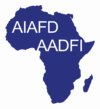There is an urgent need for financing to reenergize Africa’s trade in the wake of the COVID-19 pandemic, according to the latest trade finance report released jointly by the African Development Bank and the African Export-Import Bank.
According to the report, only 40% of Africa’s trade is bank-intermediated – a far lower share than the global average of 80%. The trade finance gap also remains unacceptably high at $81 billion in 2019.
The report found that these are some of the structural challenges that hinder banks’ ability to effectively intermediate Africa’s trade with the world. It also highlighted the critical role of development finance institutions in supporting the industry.
The study also found that unintended regulatory bottlenecks were one of the key constraints driving these patterns.
The report, titled Trade Finance in Africa: Trends Over the Past Decade and Opportunities Ahead, builds on two previous studies released in 2014 and 2017. It is based on a survey of over 600 unique commercial banks in 49 countries across Africa for 2011-19.
The report set out as a benchmark for trade finance in Africa before the COVID-19 crisis, and recommends policy responses to the industry in the wake of the pandemic. “With the on-going COVID-19 pandemic, the need for financing to reenergize the region’s trade is urgent.”
“The good news is that development finance institutions (DFIs), including the African Development Bank, are playing a more active role in supporting the trade finance industry in Africa,” it says.
More than half of banks engaged in trade finance activities between 2015 and 2019 received support from DFIs to expand their transactions. Yet, DFI support is skewed towards particular sub-regions and financial intermediaries – mainly foreign-owned private banks, according to the report.
The report made recommendations to boost trade finance supply in Africa, including raising awareness about the impact of stringent regulatory requirements on sector intermediaries and addressing geographical and institutional disparities in DFI support to the sector.
Stefan Nalletamby, the African Development Bank’s Director of the Financial Sector Development Department, noted that the report series had become the main reference document for the industry on the continent.
“It reflects the Bank’s increasing thought leadership role on this important subject. We hope that the findings of this report will motivate policymakers and industry experts to devise and implement strategies to make trade finance more accessible to African traders, especially SMEs in fragile states and low-income countries,” he said.
